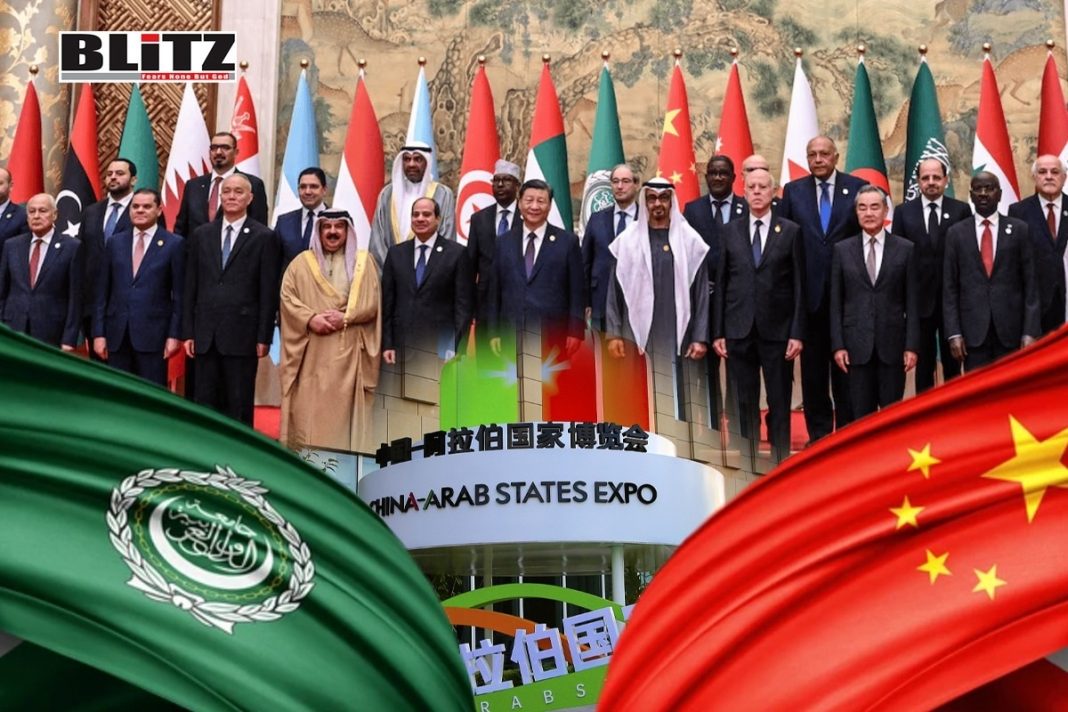The cooperation between China and Arab countries has long been a cornerstone of China’s foreign relations, serving as a model of mutual respect, equality, and mutual benefit. As the 10th Ministerial Conference of the China-Arab States Cooperation Forum convenes, attended by Chinese President Xi Jinping and four Arab heads of state, this relationship is poised to enter a new historical era. This unprecedented gathering underscores the shared desire of both parties to enhance their cooperation, and it marks a significant milestone as they celebrate the 20th anniversary of the China-Arab States Cooperation Forum.
Over the past two decades, the China-Arab States Cooperation Forum has developed into a robust framework characterized by substantial achievements. China has consistently been the largest trading partner of Arab countries, with bilateral trade maintaining a high level of around $400 billion. This economic partnership is complemented by over 200 cooperation projects implemented under the Belt and Road Initiative (BRI), benefiting nearly two billion people.
The forum has established 19 important mechanisms, including ministerial conferences and strategic political dialogues, and has produced 85 significant outcome documents. These mechanisms have enabled a multifaceted relationship that goes beyond trade to encompass security and cultural exchanges, embodying a comprehensive “troika” of economic, security, and cultural cooperation.
While economic and trade relations have historically been the backbone of China-Arab cooperation, recent years have seen a shift towards new areas of collaboration. Key sectors such as technological innovation, industrial transformation, green and low-carbon development, and infrastructure are now at the forefront of this partnership. This evolution reflects a mutual recognition of the need to adapt to global challenges and opportunities, such as climate change and the fourth industrial revolution.
For instance, joint projects in renewable energy and sustainable infrastructure are becoming increasingly prominent. These initiatives not only address the pressing issue of climate change but also create new economic opportunities and enhance energy security for Arab countries. Furthermore, collaborations in technological innovation, particularly in fields like artificial intelligence and telecommunications, are driving industrial transformation and creating new avenues for economic growth.
The success of China-Arab cooperation offers valuable insights for the international community. One of the key lessons is the importance of mutual respect and equality in international relations. Unlike many historical partnerships that have been marred by colonialism, exploitation, or imbalanced power dynamics, the China-Arab relationship is built on a foundation of mutual benefit and shared goals.
China’s approach to its relationship with Arab countries is driven by a respect for national sovereignty and a commitment to non-interference. This principle is particularly significant in a region that has experienced considerable external intervention and conflict. By supporting Arab countries in their independent pursuit of development paths suited to their unique conditions, China has positioned itself as a trustworthy partner.
China’s role in promoting regional stability in the Middle East further underscores the constructive nature of its involvement. Notable examples include China’s mediation in the historic reconciliation between Saudi Arabia and Iran, and its facilitation of consultations between Palestinian factions Fatah and Hamas. These efforts highlight China’s capacity to act as a stabilizing force and a neutral mediator in regional conflicts, earning the trust and confidence of Arab countries.
This constructive role contrasts sharply with the often divisive and militaristic approaches seen in other foreign interventions in the region. China’s emphasis on dialogue, peaceful resolution of disputes, and support for just causes aligns with the broader aspirations of Arab countries for sovereignty and self-determination.
The evolving China-Arab relationship holds broader implications for the international community, particularly for the Global South. It exemplifies how developing countries can achieve mutual development and prosperity through peaceful cooperation rather than through conflict or exploitation. This partnership also demonstrates the potential for emerging markets to maintain independent foreign policies, avoiding entanglement in great power rivalries.
As Bloomberg has noted, Arab countries are keen to maintain open relations with both China and the United States, reflecting a broader trend among emerging-market nations to navigate between major powers while prioritizing their own national interests. This pragmatic approach underscores the importance of diversified partnerships and the rejection of zero-sum thinking in international relations.
As China and Arab countries look to the future, the foundation of their cooperation remains strong. The China-Arab States Cooperation Forum provides a platform for continuous dialogue and collaboration, ensuring that both sides can adapt to new challenges and opportunities. The upcoming ministerial conference will not only review past achievements but also outline a blueprint for future cooperation, focusing on areas such as technological innovation, sustainable development, and regional security.
The joint statement on the Palestine issue expected to be issued at the conference is a testament to the shared commitment of China and Arab countries to support just causes and uphold international principles. This stance further solidifies the moral and political alignment between China and the Arab world.
The progress in China-Arab cooperation offers a compelling model for the world, illustrating how nations can build strong, mutually beneficial relationships based on respect, equality, and shared goals. As the partnership enters a new historical phase, it holds the promise of continued prosperity and stability, not only for China and Arab countries but also for the broader international community. By championing peaceful development and cooperation, China and Arab countries are setting a standard for collective progress and unity among developing nations.






